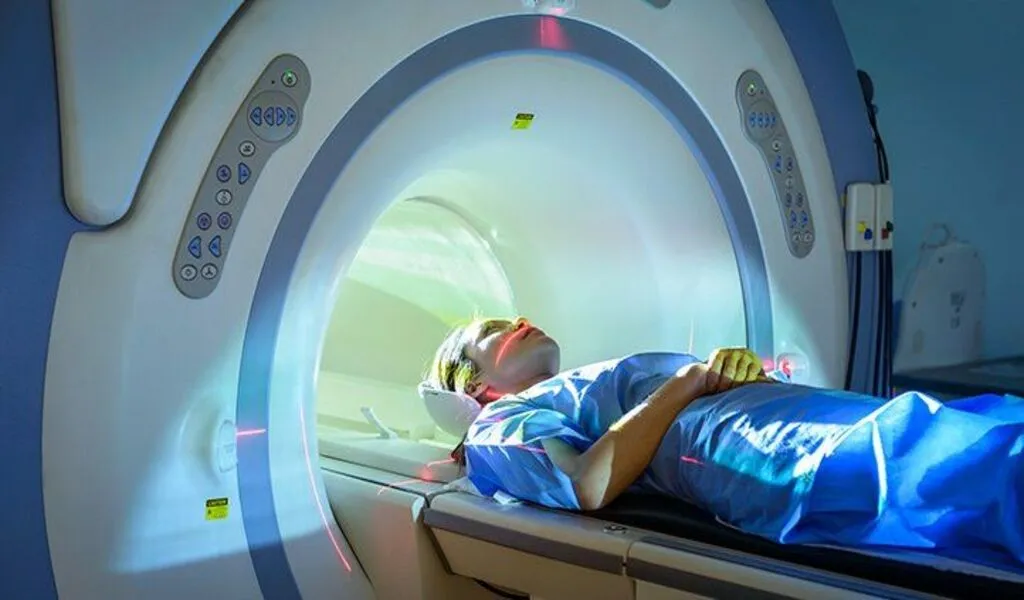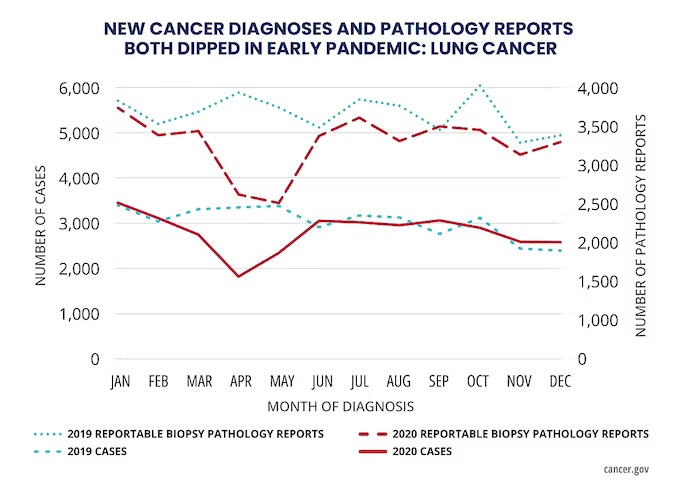News
The Impact Of The COVID-19 Pandemic: Sharp Decline In Cancer Diagnoses In The U.S.

(CT News) – The COVID-19 pandemic, which disrupted healthcare systems worldwide, had unforeseen consequences on cancer care and diagnoses in the United States.
According to the National Cancer Institute’s (NCI) Part 2 Annual Report to the Nation on the Status of Cancer, published on September 27, 2023, new diagnoses of six major cancer types sharply declined in the early months of 2020, coinciding with the onset of the pandemic.
These findings raise concerns about missed opportunities for early cancer detection, particularly among vulnerable populations. This article delves into the key revelations of the report and their implications for the future of cancer care.
The Impact on Cancer Diagnoses
The NCI’s report, based on data from population-based cancer registries, sheds light on the dramatic decline in new cancer diagnoses during the initial months of the pandemic.
The affected cancer types include female breast, lung, colorectal, thyroid, prostate, and pancreatic cancer. The reasons behind the decrease are multifaceted, but a significant factor was the disruption of cancer screenings and other cancer-related procedures.
Key Findings
- Sharp Decline in Diagnoses: From March to May 2020, diagnoses of all six cancer types mentioned above experienced a significant drop. This concerning trend indicates that cancers were not being identified in a timely manner during the early stages of the COVID-19 pandemic.
- Variation by Cancer Type: The report highlighted variations in the decline among different cancer types. The steepest drops were observed in cancers typically diagnosed through screening, such as female breast, lung, and colorectal cancer. For instance, there was a notable 16% reduction in early-stage colorectal cancer diagnoses compared to expectations.
- Return to Pre-Pandemic Levels: Encouragingly, by July 2020, diagnoses of all cancer types except prostate cancer had returned to prepandemic levels. However, the delay in diagnoses during the earlier months of the pandemic could have lasting consequences for patient outcomes.
- Electronic Pathology Reports: The decline in the volume of electronic pathology reports further supports the conclusion that the decrease in new cancer diagnoses was primarily due to missed screenings and delays in cancer-related procedures, rather than reporting delays caused by pandemic disruptions.
- Stage of Diagnosis: Notably, the declines were more significant for early-stage cancers than for advanced-stage cancers, underscoring the importance of regular screenings in catching cancer at its earliest, most treatable stages.
- Disparities in Populations: Asian or Pacific Islander populations were disproportionately affected by declines in new cancer cases, with greater reductions observed in these groups compared to white, Black, and American Indian or Alaska Native populations. Pancreatic cancer was the exception in this trend.
Implications and Future Considerations
The NCI’s report serves as a stark reminder that a decrease in cancer incidence does not necessarily signify progress in the fight against cancer.
Missed opportunities for early cancer detection can lead to more advanced disease stages, potentially resulting in poorer outcomes and increased healthcare costs.
To address these concerns, healthcare systems should prioritize strategies for catching up on missed cancer screenings and procedures. This is particularly crucial for vulnerable populations facing barriers to accessing cancer care.
Public health campaigns and increased awareness about the importance of cancer screenings may help encourage individuals to seek timely medical evaluation.
Moreover, the healthcare community should continue to monitor and assess the long-term consequences of the pandemic on cancer outcomes.
Comprehensive analyses of data from 2020 and beyond are essential to understanding the full impact of the pandemic on cancer care in the United States.
In conclusion, while the COVID-19 pandemic presented unprecedented challenges to healthcare systems worldwide, it is imperative to address the alarming trends in cancer diagnoses revealed by the NCI’s report.
Timely and proactive measures can help mitigate the potential consequences of delayed cancer diagnoses and ensure that all Americans have access to the necessary care to combat this deadly disease.






























